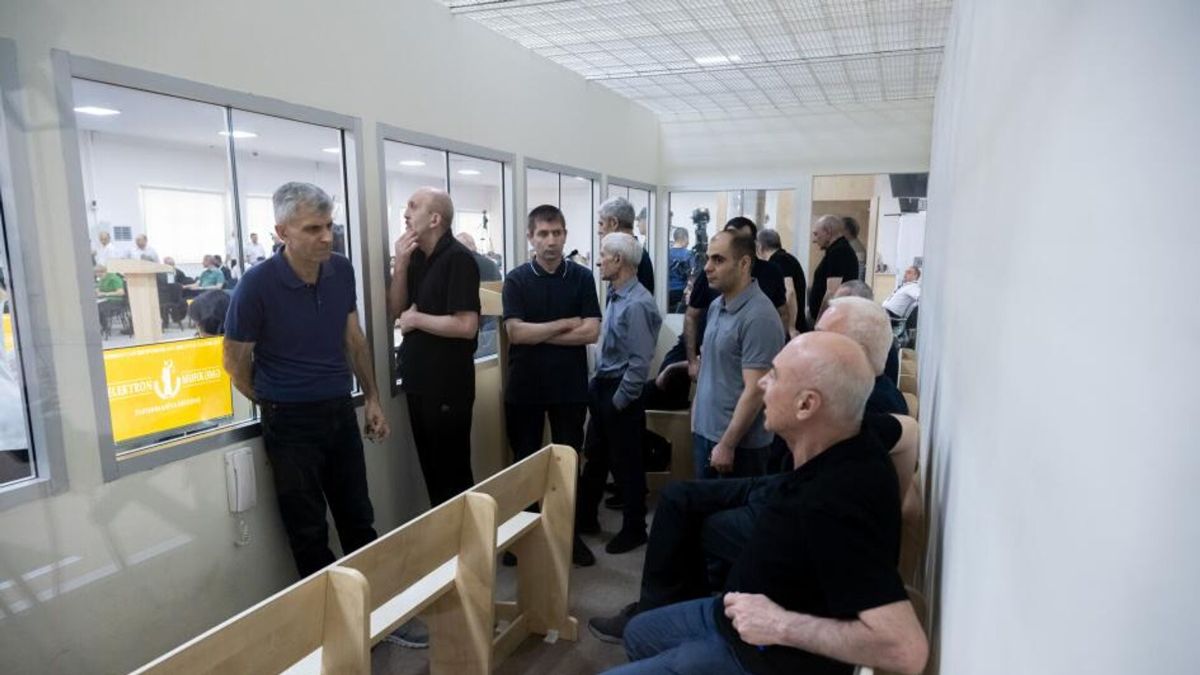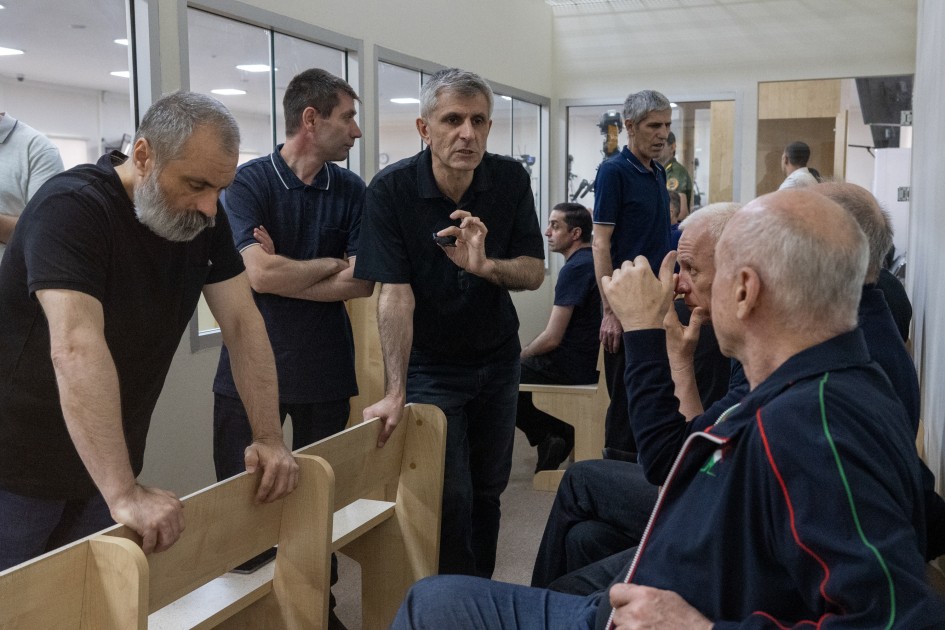US embassy staff ‘where possible’ attend trials of Armenians in Baku
US monitors trials of Armenians in Baku
Armenian human rights defenders have long warned the international community about the alarming situation of Armenians held in Azerbaijani prisons. They claim the detainees are in “complete isolation”, with no access to information about their conditions or health. Since September, the only international organisation with access to them — the International Committee of the Red Cross (ICRC) — has ceased its activities in Baku. The ICRC staff last met with the prisoners in June.
However, recently, US State Department legal adviser Paul Guaglianone said that “US embassy staff, where possible, attend court hearings in Baku.” How this is arranged remains unclear, as the trials are closed to international organisations and the media.
Armenian human rights defender Siranush Sahakyan suggested that embassy representatives attend only those court sessions to which Azerbaijani authorities grant access, noting that such limited participation makes full monitoring impossible.
Meanwhile, former International Criminal Court prosecutor Luis Moreno Ocampo questioned the impartiality of the UN working group that issued a conclusion on the trials of Armenians in Azerbaijan. On 17 February 2025, the UN Working Group on Arbitrary Detention (UNWGAD) released its opinion regarding one of the detainees — former state minister of the defunct Nagorno-Karabakh Republic, Ruben Vardanyan — stating that “Azerbaijan’s detention of Vardanyan was not arbitrary.”
“The expert opinion of former ICC prosecutor Luis Moreno Ocampo reveals the real issue — a conflict of interest. The current chair of the group, Hanna Yudkivska, is a partner at the law firm Equity Law Firm, which represents the interests of Azerbaijan’s state oil company SOCAR in Ukraine,” the Free Armenian Hostages platform reported.
Azerbaijan officially confirms that it holds 23 Armenians in its prisons, including the former military and political leadership of the unrecognised Nagorno-Karabakh Republic. Their trial has been ongoing for eight months at the Baku Military Court. Azerbaijani courts have charged the Armenian detainees with serious crimes and could sentence them to life imprisonment. Armenian human rights defenders accuse Baku of trying Armenians on fabricated charges and call the trial a “farce.”
- ‘Their only fault is being Armenian’: European Parliament urges Baku to release prisoners
- ‘Fate of Armenian prisoners will depend on Baku’s whim’: Opinion from Yerevan
- ‘Freedom for Ruben Vardanyan and others’: protests in Armenia
- ‘Former Armenian Karabakh leaders imprisoned in Baku given psychotropics’ – key points from Pashinyan’s interview
Washington seeks alternative information
The Armenian National Committee of America (ANCA) said US embassy staff attend court hearings in Baku, citing a State Department letter received in response to its inquiry. The letter, dated 25 September 2025, stated that the United States is closely following the trials of Armenians in Azerbaijan.
Human rights lawyer and representative of Armenian prisoners before the European Court of Human Rights, Siranush Sahakyan, believes that embassy staff have limited access to full information since they cannot attend all hearings.
“The Americans are also trying to obtain alternative information about these trials, which are conducted with gross violations of human rights. To do so, they reach out, among others, to the prisoners’ relatives and lawyers,” Sahakyan said.
She believes the US aims to fully assess the violations during the Armenians’ trials to decide its role in their release.
“For Washington, it is important to form a public assessment of how far these trials have met human rights standards and the right to a fair trial, and what violations were recorded in the course of their monitoring,” Sahakyan added.
“Justice cannot be selective”
According to the Free Armenian Hostages platform, former ICC prosecutor Luis Moreno Ocampo identified violations that raise “serious doubts” about the impartiality of the UN working group. The link between SOCAR and the head of the UN commission, the publication says, “constitutes a direct financial connection with Azerbaijan.”
The platform recalls that UN regulations require absolute independence and recusal in cases of conflict of interest. However, Hanna Yudkivska::
- did not disclose her connection with SOCAR,
- did not recuse herself,
- and participated in issuing Opinion No. 46/2024 in the case of Ruben Vardanyan.
Thus, the UN Code of Conduct, conflict of interest provisions for UN staff, and the commission’s working procedures were violated.
“All this casts doubt on the impartiality of Opinion No. 46/2024. The United Nations must immediately review this case. Impartiality is not selective — it is the foundation of justice.”
Free Armenian Hostages also reported that the husband of the commission chair is a Ukrainian politician of Azerbaijani origin who faces corruption charges and “has close ties with Azerbaijan.”




















